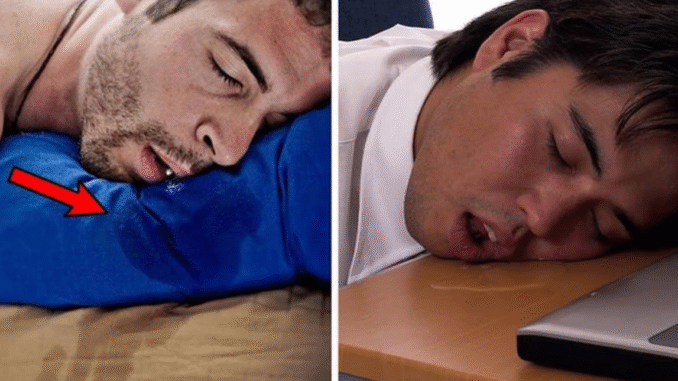
Drooling during sleep might appear as a minor, sometimes embarrassing issue that many experience. However, if it occurs often or starts abruptly, it could signal an underlying health problem that needs attention.
What Leads to Drooling in Sleep?
Typically, saliva production drops during sleep, and swallowing becomes less frequent. Yet, factors like mouth breathing, sleeping posture, or weak muscle control around the mouth can cause drooling. Occasional drooling is generally harmless…[Read More]…
When Drooling Indicates a Serious Issue
Frequent or excessive drooling during sleep may point to neurological or muscular conditions. One significant condition to consider is Parkinson’s disease.
Parkinson’s is a progressive neurological disorder impacting movement and muscle control. As it advances, weakened muscles involved in swallowing and saliva control can lead to saliva buildup, resulting in drooling during sleep, a condition known as sialorrhea, common among Parkinson’s patients.
Other Potential Causes
In addition to Parkinson’s, excessive drooling may stem from:
- Sleep apnea: Mouth breathing, common in obstructive sleep apnea, can cause drooling.
- Stroke or brain injury: Brain damage may disrupt muscle coordination, including swallowing.
- Allergies or sinus infections: Nasal congestion can lead to mouth breathing, increasing drooling.
- Certain medications: Some drugs may boost saliva production or relax muscles.
When to Seek Medical Advice
If you or someone close to you begins drooling excessively during sleep, particularly with symptoms like stiffness, tremors, difficulty swallowing, or daytime fatigue, consult a healthcare provider. Early detection of conditions like Parkinson’s can improve management and quality of life.
Tips to Reduce Drooling
While awaiting medical guidance, try these steps to manage nighttime drooling:
- Sleep on your back to minimize saliva pooling.
- Stay hydrated and address allergies or sinus problems.
- Maintain good oral hygiene.
- Avoid alcohol or sedatives that relax muscles…..Click Here to Continue Reading…
